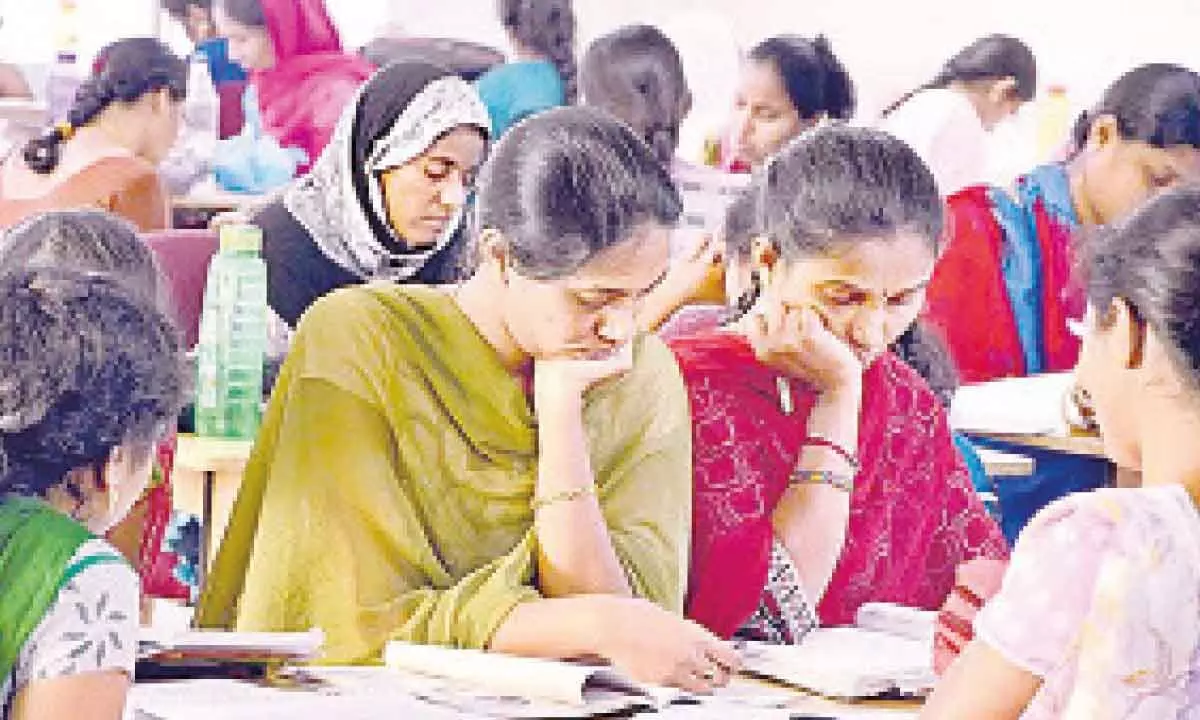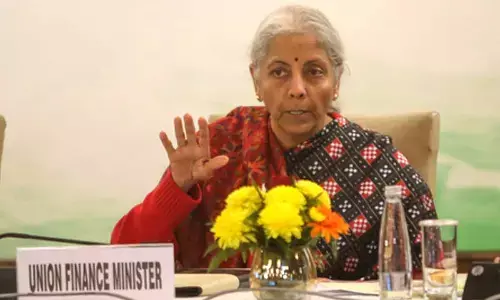UGC prods HEIs to roll out BNS sensitisation drive soon

Hyderabad: The University Grants Commission (UGC) has sought Higher Educational Institutions (HEIs) to take up a wider range of activities to create awareness of the Bharatiya Nyaya Sanhita (BNS) that replaced the Indian Penal Code.
The initiative comes from the Union Home Ministry following the Bharatiya Sakhaya (BS) replacing the Indian Evidence Act and the Bharatiya Nagarik Suraksha Sanhita (BNSS) replacing the Code of Criminal Procedure.
Sensing several apprehensions being spread about the new laws, the HIEs are asked to hold seminars, discussions, debates, and similar activities to dispel myths and create awareness about the facts about the new laws.
The UGC asked the HEIs about the sensitisation amongst faculty and students about the BNS and its implications for ensuring timely justice. It asked "to publicise the Bharatiya Nyaya Sanhita, 2023, around the themes contained in the flyers attached and by carrying out campaigns by way of displays through standees, distributing flyers, organising seminars and talks by lawyers, judges both serving and retired, and their respective faculties in their institutions." Further, the HEIs are also requested to share details of activities undertaken with the Ministry of Education.
A 52-page handout listed out several issues on which students, faculty, and other stakeholders can discuss. For example, the new criminal laws are assumed to threaten the individual freedom of the citizens to establish a police State. However, with a provision for audio-video recording of search and seizure operations, it provides protection against abuse, fosters police accountability, and protects individual rights.
Aside from that, it states that in order to give citizens convenience and accessibility, the e-FIR provision enhances accessibility, allows individuals to lodge complaints from any location, reduces barriers, and ensures timely legal remedies.
Besides, the efficient judicial process provided in the new laws allows permitting trials in absentia, streamlining legal proceedings, addressing delays caused by absconding accused individuals, and ensuring a more efficient justice delivery system.
In terms of jurisdictional flexibility, Zero FIR eliminates jurisdictional constraints, enabling individuals to file complaints at any police station, thereby expediting the legal process and improving citizen friendliness. Strict oversight mechanisms, including mandatory recording of arrests and evidence provision, act as preventive measures against potential police excesses, ensuring adherence to legal procedures. In addition, the laws prioritise the protection of Fundamental Rights, including the Right to Free Speech and Peaceful Assembly, allaying concerns of arbitrary suppression of dissent.
The new laws were intended to do away with the British legacies introduced by the colonial masters to enforce and strengthen their rule in India. The main objective of the new laws was to be citizen-centric, victim-centric, and sensitive to offences against women and children. The new punishments like community service, categorising new offences like ‘Deshdroh’, terrorist acts, mob lynching, organised crime, petty organised crime, and snatching.
As part of the same, the new laws provided for enhanced punishments for 33 offences and simplified laws by reducing 511 sections to 358 sections. The repeal of sedition, a colonial legal relic to address the concerns of misuse against dissenters and critics of the government
Gender-neutral provisions, mental health terminology, time-bound prosecution of civil servants for their misconduct, and community service for criminal defamation aligning with modern approaches to justice emphasise rehabilitation and societal contribution over punitive measures.
Similarly, stakeholders can discuss and debate the extension of custody from 15 to 90 days introduced in the new criminal laws, giving apprehension of allowing police torture and the like.















